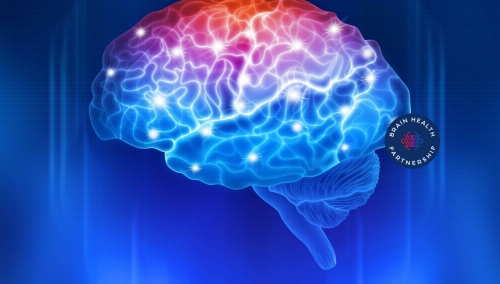Prevention
Our Nation has a goal, promote healthy aging and reduce the risk factors for dementia, and so do we: in 10 years, reduce new cases of dementia by 15% by mitigating risk factors, with a focus on groups of people who are disproportionately affected. When we succeed, an estimated half-million fewer Americans will be living with dementia.

We are uniting leading private sector companies and institutions to optimize cognitive health.
Prevention and Brain Health
About
One out of every three dementia cases are preventable. To prevent dementia, we need to reduce the risk of getting it and promote strategies that optimize brain health over the lifespan. Effective strategies include lifestyle approaches such as physical activity, nutrition and sleep, and addressing other conditions that increase risk of cognitive impairment, including obesity, hypertension, and hearing loss. Building brain health not only promotes healthy cognition and longevity, but also generated greater economic competitiveness, empowerment, equity, and social resilience.
Here is how UsAgainstAlzheimer’s is doing this:
- Equip health and wellness professionals with the knowledge and resources to help people reduce the risk of dementia and Alzheimer’s.
- Employ the innovation and reach of the private sector, by advancing measurably effective brain healthy workplaces, communities, and product and service innovations.
- Advance change at scale through strategic policy action that improves prevention, treatment, and management for major dementia risk factors, such as hypertension, obesity, physical inactivity, depression, and hearing loss.
Brain Health Academy
Brain Health Academy provides evidence-based courses to equip health and wellness professionals with the knowledge and resources to help people reduce the risk of dementia and Alzheimer’s.
Learn more and register for our courses.
Our Curriculum Advisory Committee:
- Constance Brown-Riggs, MS, RDN, CDCES, CDN - CBR Nutrition Enterprises
- Leon Coleman, MD, PhD - Bowles Center for Alcohol Studies at the University of North Carolina at Chapel Hill
- Beth Hope, LCSW - Compass Health Center
- Erica Kornblith, PhD - University of California, San Francisco
- Jennifer Orozco-Kolb, MMS, PA-C - American Academy of Physician Associates
- Jennifer Sandoval, PhD, RN - DePaul University, College of Health Sciences
Thanks to Rush University’s Center for Innovative and Lifelong Learning, we will be providing CME/CE credit for the following:
- Continuing Medical Education (AMA PRA Category 1 Credit™)
- Continuing Nursing Education (ANCC)
- American Psychological Association (APA)
- Commission on Dietetic Registration (CPEU)
- Association of Social Work Boards (ACE)
- Continuing Education (CE)
Advocacy
UsAgainstAlzheimer’s led the movement to make the prevention of Alzheimer’s and related dementia a national priority. But we are not stopping there. We continue to advocate for smart policies and adequate funding to make this goal a reality.
Brain Health Academy
Brain Health Academy provides evidence-based courses to equip health and wellness professionals with the knowledge and resources to help people reduce the risk of dementia and Alzheimer’s.